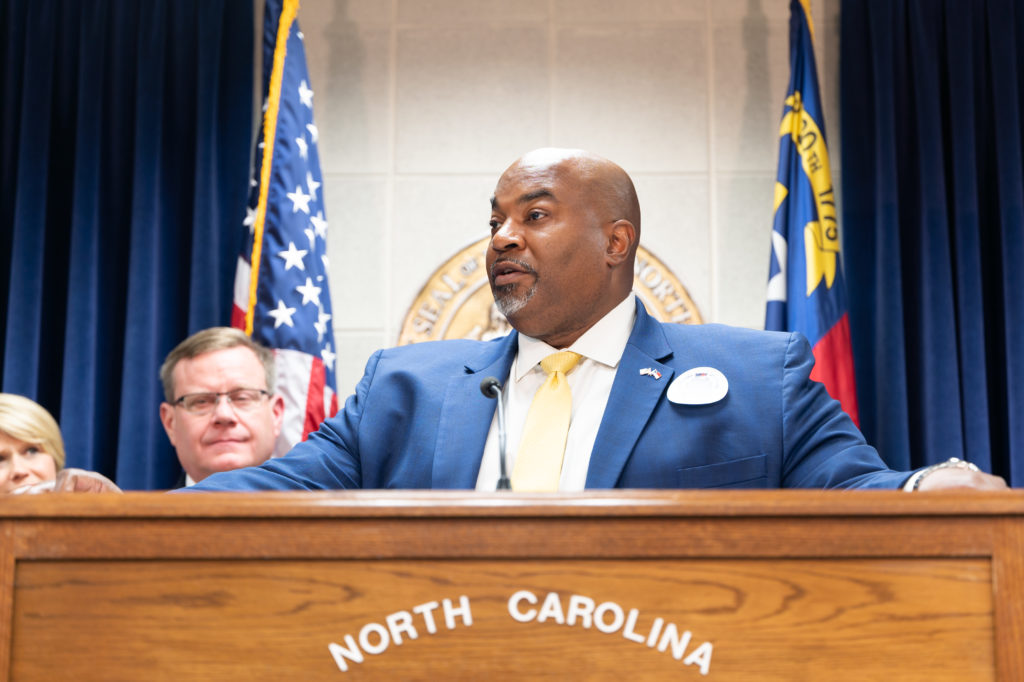Lt. Gov. Mark Robinson certainly grabs plenty of headlines and attention these days. Most conservatives across the state gravitate toward Robinson’s story, his rapid political ascent, and decisiveness on the issues. Many on the left fear him or struggle to take him seriously. Likely for most on the left, it’s a combination of both. Yet, Robinson continually highlights a vital and oft-neglected topic in culture today by focusing on the dignity of work.
Robinson is wise to highlight the dignity of work beyond mere policy prescriptions or partisan talking points we often hear. Instead of clamoring for government-mandated wages or unfair corporate tax incentives, he’s focusing on the moral and spiritual benefits of work. Some might even call it the virtues of the daily grind.
Again this month, Robinson reinforced how a commitment to work by his mother changed the trajectory of his own life in a Fox News interview with Dan Bongino.
Robinson said it isn’t just our system of government that created a great nation, but the American work ethic that differentiates this country from much of the world.
“The American work ethic is one of the most important things that this nation has,” declared Robinson. “People come here and want to come here from all over the world. And why? Because Americans have worked so hard to build this constitutional republic to be the garden spot of the world.”
The message comes at a crucial time, given that extended unemployment benefits and other government policies are eroding this vital view of work. Some are now incentivized to stay at home and collect checks. Those decisions have impacted supply chains, the service industry, and may end up permanently increasing the size of the state and federal government.
Some politicos have no qualms about creating a more dependent middle class that looks to the government first over values like thrift, savings, or financial independence. Those virtues stem from a culture with a high work ethic.
While not always fun, work and vocation allow us to pursue missions and callings greater than ourselves. The Christian authors Gerard Berghoef and Lester DeKoster note, “God so arranges work that it develops the soul.”
Work helps us provide for ourselves and loved ones and allows us to express our talent and creative nature. Work helps to bring meaning to our lives that are reflective of the created order all around us.
Despite what many ideologues believe, work reinforces that America is so much more than the government. It’s a reminder that life is not always fair, and we aren’t entitled to the fruits of other’s labor and productivity.
Robinson likes to tell the story of his father dying and his mother going to work as a custodian at a college – where she raised five school-aged kids still dependent on her and by herself with a fifth-grade education. It’s a powerful story. While her job didn’t come with an impressive title or pay from a worldly standard, given how it has shaped Robinson – especially since he’s still talking about it – the lasting impact of her work is indeed significant.
Many on the left simply want to deduce work as a way to incite class warfare or increase government programs. With more government assistance and the printing of “free” money by the Treasury, perhaps it’s becoming less shameful to be able-bodied and unwilling to work and provide for a family?
The real shame is losing our strong work ethic and hustle that helped make America the greatest beacon of light in world history. Work is so much more than a paycheck or a holding pattern before retirement.
Robinson is calling us to again value and pride ourselves in the dignity of work. The fact that this truth might be less prevalent than in the past means we not only face a more meager future, but it spells real trouble for our state and republic as a whole.
Ray Nothstine is Carolina Journal opinion editor.

